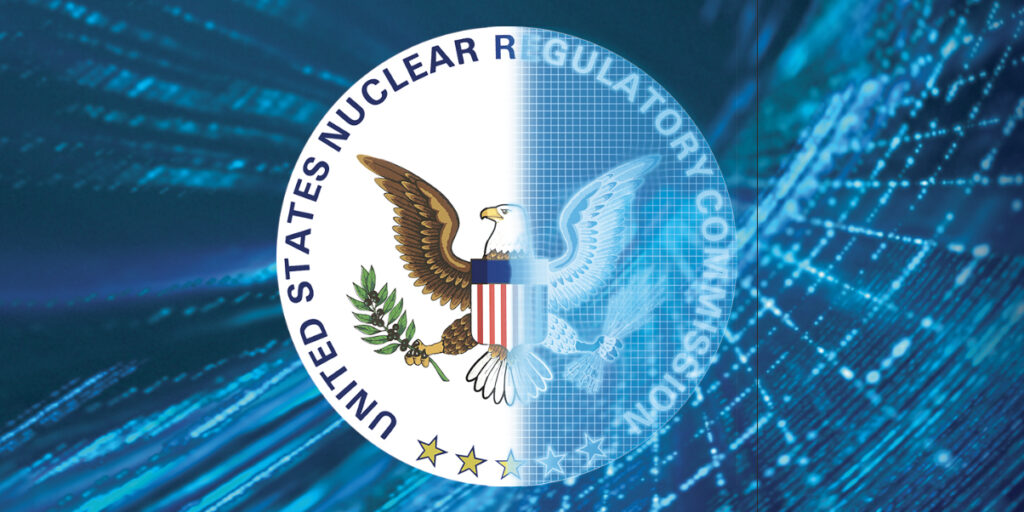In the ongoing global effort to combat climate change and build a truly sustainable future, the stability and independence of crucial regulatory bodies are paramount. Recent events surrounding the Nuclear Regulatory Commission (NRC) have brought this into sharp focus, highlighting how political shifts can impact institutions vital to our nation’s energy security and environmental stewardship.
The Unsettling Shift at the Nuclear Regulatory Commission
The recent dismissal of Christopher Hanson, former chair of the Nuclear Regulatory Commission under President Joe Biden, by the Trump White House has sent ripples of concern through both political and environmental circles. Hanson, a highly experienced professional with over two decades in nuclear energy, fuel cycle, security, and radioactive waste, was nominated to the NRC by Trump in 2020 and later elevated to chair by Biden in 2021. His renomination in 2024 was even approved by a bipartisan Senate majority, signaling widespread confidence in his expertise and leadership.
His abrupt removal via a terse email, without stated cause, marks an unprecedented action in the history of the NRC. The underlying context, as articulated by the White House, points to a desire for “leaders to be rowing in the same direction,” indicating a broader strategy to exert greater control over independent agencies. This move raises significant questions about the autonomy of an agency explicitly designed to operate free from political influence, ensuring the health, safety, and welfare of the American people through rigorous nuclear safety regulations.
Experts and Democratic lawmakers have voiced strong condemnations, asserting that Hanson’s dismissal may violate the foundational principles of the 1946 Atomic Energy Act, which established the NRC as an independent entity. This independence is not merely a bureaucratic nicety; it is the cornerstone of public trust in nuclear energy, a critical component of a low-carbon energy future. The arbitrary removal of commissioners without due cause creates regulatory uncertainty, potentially delaying the essential review and deployment of advanced nuclear technologies that could significantly aid in decarbonization efforts.
The NRC’s role is to provide stable, expert oversight, ensuring that nuclear power plants and related technologies operate safely. Any perceived political interference risks eroding public confidence and destabilizing an industry that is crucial for meeting climate goals. As the nation faces increasing electricity demand, partly driven by advancements like AI, and seeks to transition to lower-carbon electricity generation, the NRC’s ability to maintain a consistent, science-based approach is more vital than ever.
The Broader Implications: Independence Under Scrutiny
This isn’t an isolated incident. The Trump administration has consistently sought to assert greater executive control over various independent agencies, viewing them as part of the executive branch that should align with presidential policies. This includes efforts to subject their major regulations to White House review, establish performance standards for agency heads, and even influence their budgets.
While the desire for governmental efficiency is understandable, the independence of agencies like the NRC is specifically designed to shield critical functions – such as nuclear safety, financial market regulation, and environmental protection – from short-term political whims. This insulation is a structural safeguard intended to ensure consistent, expert-driven decision-making that prioritizes long-term public interest over immediate political agendas. When this independence is challenged, it can lead to regulatory uncertainty, discourage investment, and potentially compromise the very safety standards these agencies are meant to uphold.
Nuclear Energy: A Critical Pillar in Climate Action
Amidst these political developments, it’s crucial to reaffirm the role of nuclear energy in the fight against climate change. Nuclear power currently provides nearly half of America’s carbon-free electricity, offering a reliable, 24/7 source of power that emits no greenhouse gases during operation. Unlike intermittent renewable sources, nuclear energy provides a stable baseload, complementing wind and solar and significantly reducing reliance on fossil fuels.
Globally, there’s a growing recognition of nuclear energy’s importance. Major international climate discussions, including the COP conferences, are increasingly acknowledging nuclear power as a vital low-emissions technology. Its advantages extend beyond zero emissions; it has one of the lowest carbon footprints across its entire lifecycle, requires significantly less land than other energy sources, and boasts an impressive safety record over decades of operation.
However, for nuclear energy to truly play its part in achieving ambitious climate goals—such as reducing U.S. greenhouse gas emissions by 50-52% by 2030 and reaching net-zero by 2050—it requires a predictable and supportive regulatory environment. Regulatory certainty is key to attracting the necessary private investment for building new reactors and maintaining existing ones. Policies that acknowledge nuclear energy as a clean, reliable, and safe source are essential.
Sustainable Action Now: Our Call to Action
At Sustainable Action Now, we believe that real progress on climate change hinges on robust, science-backed policies and institutions free from undue political pressure. The recent events at the NRC underscore the urgent need for vigilance and advocacy to protect the integrity of our independent regulatory bodies.
This is a call to action. We must ensure that decisions affecting our energy future are guided by expertise, not partisan politics. Supporting independent oversight is not just about nuclear safety; it’s about safeguarding our path to a sustainable, low-carbon world.
We encourage you to explore more about critical climate issues and how independent regulatory action plays a role in our collective future. Visit our climate category page at https://sustainableactionnow.org/category/climate/ for in-depth articles and analyses on these vital topics.
The path to a resilient climate future demands consistent action, informed by science, and supported by independent institutions. Let us stand united in upholding these principles, ensuring that sustainable progress remains our guiding star.


